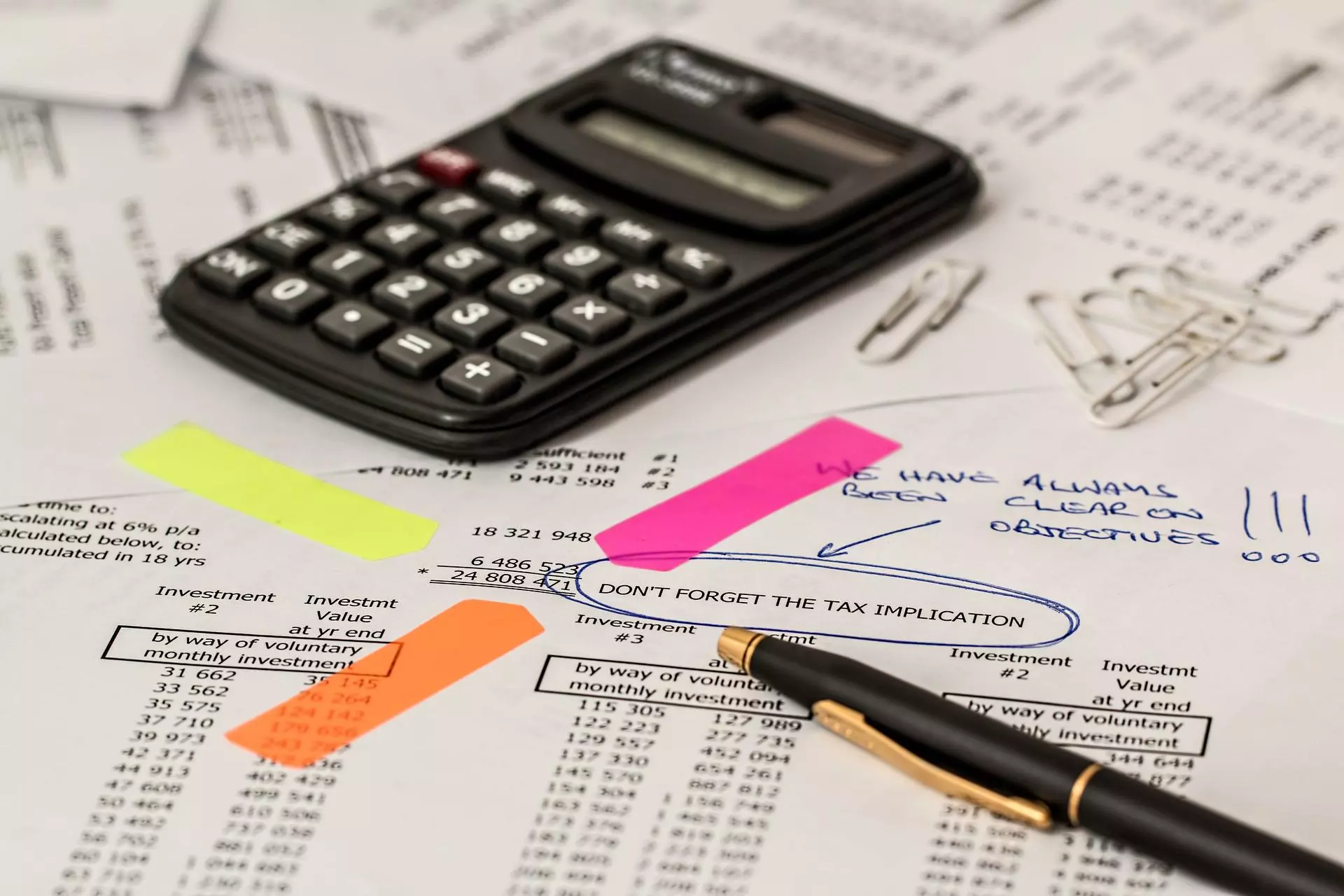Do company accounts have to be prepared by an accountant? If you are running a small business, we look at the reasons why you would choose an accountant to manage your bookkeeping.
Is an accountant necessary for my business? We discuss the common types of businesses and explain why an accountant is useful.
Do I need an accountant or a bookkeeper?
Generally, many business owners perceive their most vital choice is deciding whether to hire an accountant or bookkeeper that is outsourced and not affiliated with their company. However, what we believe is the most important for a business start-up is discovering a finance function that best suits and meets your needs and legal requirements.
The form you choose doesn't matter; you can decide to employ a bookkeeper or accountant or handle the expenses yourself.
The first port-of-call as the owner should be to ensure you are consistently following all the laws, rules and necessary regulations put in place by HMRC and the Companies House. HMRC (Her Majesty's Revenue and Customs) is where your most significant obligations lie.
You must be sure all financial information, including company tax returns, is correct and submitted to them by the deadlines that have been previously set.
Sole Traders
A sole trader is what we call a self-employed person, as they are often the sole trader of their company. Being a sole trader is considered one of the most straightforward business structures, and it tends to be the most popular route for ambitious business starters.
All sole traders need to complete a Self-Assessment Tax Return form.
Partnerships
A partnership in terms of a company is a business consisting of two or more professionals that wish to combine their skills and resources to curate a single company. Together they share retained profits and losses and the risks during their financial and business ventures.
All those in partnerships must complete a separate Self-Assessment Tax Return from each partner involved and a collaborative Partnership Tax Return.
Limited Companies
All owners of limited companies must complete an Annual Return statement, whereas Directors and CT600 Company Accounts must file Self-Assessment Tax Returns. A limited company is a specific business structure with a separate legal identity from its directors and shareholders or owners.
Even if your company is solely run by one individual acting as company director or shareholder, they can still have their own legal identity; thus, you have a right to a limited company accountant.
Any business with employees
Suppose you have a business with multiple employees. In that case, you will need to complete a weekly or monthly payroll using accounting software such as Real Time Information (RTI) before submitting these payment slips to the HMRC.
You do not need a professional bookkeeper or use an accountant to complete these tasks; however, we highly recommend investing in one you trust if you feel you would struggle to cope with the VAT returns, pay tax returns, corporation tax, and interest and expenses.
How to prepare company accounts for a small company?
It's vital to understand how best to prepare company accounts for your small business if you consider managing the business finances and company tax yourself during the company accounting period.

All statutory accounts will usually include:
A balance sheet - The balance sheet will display the overall value of the assets your company owes, previously owned and those you own.
A profit and loss account - The profit and loss account will list the running costs, the company's sales and any profit or losses you have made within the last financial year-end.
Company's Financial Year Notes on the accounts
A director's report and auditor's report - These are often included when your business is a little bigger than the average small business.
A cash flow statement.
Please note that if the government considers your business a micro-entity or small company, more straightforward or abridged accounts sent directly to the Companies House register without being audited will suffice.
Many often wonder whether or not their business counts as small and, therefore, are confused about how best to complete company accounts. The UK government states that your company is considered small if it involves two of the following aspects:
- It has a balance sheet of £5.1 million or less.
- You have approximately 50 or less than 50 employees.
- You have a turnover of £10.2 million or potentially less.
However, your company may be considered a micro-entity if it includes the following factors:
- It has a balance sheet of £316,000 or less.
- You have approximately 10 employees or less.
- You have a turnover of £632,000 or less.
Often if you are the owner of any small companies or micro-entities, you may utilise an exemption, and these exemptions mean that company accounts do not require an audit.
You can choose whether you wish to send a profit and loss account or a copy of the director's report to the Companies House. Balance sheets, on the other hand, can be easier to manage.
Micro-entities tend to prepare simpler annual accounts that perfectly meet the statutory minimum requirements. Their only job is to ensure that balance sheets are sent to Companies House. Statutory accounts must meet the necessary accounting standards and the following conditions of either:
- The New UK Generally Accepted Accounting Practice
- International Financial Reporting Standards
Do you need an accountant for your business?
When starting a business, one of the most notable questions people ask is 'Do I need an accountant for my business?' The answer to the question is often no.
If you are confident in your mathematical skills and have your own accounting software installed into your systems, you can choose to deal with, prepare and file your employee's accounts yourself.
Whether your current company is dormant or active, company accounts are legally required every year, no matter the circumstances.

When beginning your business, you'll want to start registering and submitting your company accounts at Companies House within the first nine months of the ARD, known as the Accounting Reference Date. ARD tends to be set on the anniversary of the month your company was registered, generally on the last day of the calendar.
However, suppose you discover that perhaps you lack knowledge of the know-how of accountancy and would find the job challenging to navigate on a weekly or monthly basis. In that case, it's best to hire a skilled professional accountant that you trust enough to deal with the financial aspects of your company.
When searching for a high-quality accountant in your area, feel free to take your time and search for something with a personality that you feel you can work closely with and trust. There are many monthly newsletters to subscribe to that will provide you with the top professionals in your area, alongside fantastic up-to-date advice for those going through the process alone.
We highly suggest that you meet with your potential accountant face-to-face before engaging with their services. A personal connection with someone in this field is critical; they need to understand how you and your business work to provide the best information and advice.
Ensure you ask about their ranges of services or packages to ensure they are up to your standards and can fulfil your company's needs.

It's excellent to discuss experience and qualifications to see whether they have been certified through a recognised UK body. Many UK professional bodies require their members to have the essential skills and training to perform their jobs.
You also want to pick an accounting firm that suits your UK companies' needs and requirements on various levels. For example, the firm's size should match the size of your own business; for those that are sole traders, contractors or manage a micro-company, you may feel your work is best suited to a small accounting firm.
However, suppose you have relatively big visions and ambitions for your fast-growing start-up company. In that case, you'll want to search for chartered accountants under larger firms, as they will know how best to grow a business on a larger scale monetarily.
What an accountant can do for your business
For those who are self-employed or running a successful small business, it's best to hire a talented accountant with all the skills and qualifications to offer some fantastic financial advice and advantages.
With an accountant present at your company or working diligently behind the scenes, you can free up plenty of time and energy to focus purely on your business without worrying about the financial side, which can become time-consuming if you have other factors to manage alongside it.
Their accounting duties can help handle the essential monetary functions of a company, such as filing your HMRC and company returns on time and bookkeeping.
When your business begins to grow and boom, your accountant will be able to provide significant input that will help you further succeed, covering vital aspects, for example:
- Financial Reporting
- Business Planning
- Tax Efficiency
- Payroll
- Compliance
Accountants will allow you to save your business money in a wide range of business-related areas by improving your cash flow and increasing tax efficiency.
It's paramount that they provide general support and sufficient business advice; they can discuss with you your company's future growth plans and your ideas to enhance the workplace and business itself.
Above all, a good accountant will typically provide top-tier, reliable advice and all the financial information you require to make informed decisions about your business.
Get In Touch With our Tax Accountant Today
Are you looking for accounting and payroll in Cheadle Hulme and the surrounding areas of Manchester and Cheshire?
Follow the link below for professional accounting near you.

